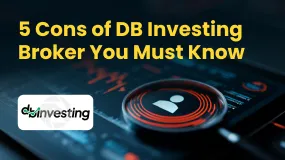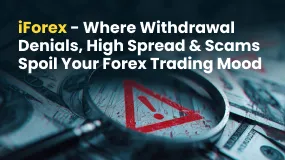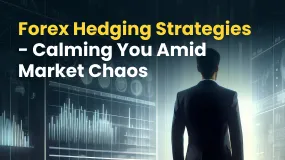简体中文
繁體中文
English
Pусский
日本語
ภาษาไทย
Tiếng Việt
Bahasa Indonesia
Español
हिन्दी
Filippiiniläinen
Français
Deutsch
Português
Türkçe
한국어
العربية
Do You Really Understand Your Trading Costs?
Abstract:Trading in the foreign exchange market is often viewed as a game of precision, strategy and speed. But what many traders overlook is one of the most decisive factors affecting performance: cost. Not just the fees you can see, but the less visible costs hidden in the structure of every trade.

Trading in the foreign exchange market is often viewed as a game of precision, strategy and speed. But what many traders overlook is one of the most decisive factors affecting performance: cost. Not just the fees you can see, but the less visible costs hidden in the structure of every trade.
For most participants, trading charges are accepted as part of doing business. They are a necessary friction in an otherwise fluid environment. However, for serious traders, these charges are not minor deductions. They are critical variables that can shape long-term results.
The true cost of trading goes far beyond visible fees. While retail traders tend to focus on headline figures such as commissions or maker and taker rates, these represent only a portion of the real cost. The rest lies in the background, embedded in elements such as slippage, latency, platform performance and the behaviour of spreads during periods of stress.

Latency, or the time it takes for a trade to be executed, may seem like a small detail. But even brief delays can shift entry or exit points in ways that quietly chip away at your profitability. In highly active environments, especially when trading the most volatile forex pairs, these milliseconds matter.
Slippage is another silent cost. It is the difference between the price you expected and the price you actually received. During rapid market moves, this gap can widen significantly. In markets where precision is everything, slippage can be the difference between a win and a loss.
Spread behaviour during key events is also critical. Even brokers who advertise low fees often widen spreads during major announcements or low liquidity periods. The cost of trading in such moments can far exceed what is shown on the surface.
Then there is platform reliability. When trading activity surges, some platforms slow down or even freeze. This is not just frustrating. It means missed opportunities, poor execution and losses that could have been avoided.
The harsh truth is that many platforms offer low or zero commission trading but make up for it in other ways. These include wider spreads, limited access to essential tools, or account restrictions that block advanced features unless you upgrade.
Cost efficiency in trading is not just about paying less. It is about knowing exactly where your money is going. It is also about selecting a broker that is transparent, responsive and robust enough to perform under pressure, particularly when engaging with the most volatile forex pairs.
There will always be costs in trading. The real question is whether you understand them well enough to take control of your performance.

Disclaimer:
The views in this article only represent the author's personal views, and do not constitute investment advice on this platform. This platform does not guarantee the accuracy, completeness and timeliness of the information in the article, and will not be liable for any loss caused by the use of or reliance on the information in the article.
Read more

5 Cons of DB Investing Broker You Must Know
It's always advisable to read online review articles about forex brokers you are thinking to Invest your money with. The forex market has become increasingly unsafe due to the rise of fraudulent brokers. Review articles help you spot scam brokers and protect your money. Read this important article about DB Investing to stay fraud alert.

iForex - Where Withdrawal Denials, High Spread & Scams Spoil Your Forex Trading Mood
Are high spreads charged by iForex disallowing you to make profits? Do you feel that you will never be able to withdraw from iForex? It's nothing new! Read this exposure story where we have highlighted complaints from several investors.

Forex Hedging Strategies - Calming You Amid Market Chaos
Finding it hard to deal with the forex market volatility? Do those ups and downs in currency pair prices make you more nervous or worried? You need the right forex hedging strategies. As a concept, forex hedging is about strategically opening additional positions to stay immune against adverse forex price movements. It’s about offsetting or balancing your current positions by buying or selling financial instruments. As a trader, your risk exposure is reduced, hence limiting your potential losses.

Scam Alert: Cloned Broker Scams on the Rise
Reputed authorities like the FCA have issued warnings against brokers who act genuine but are actually fake brokers. They copy details such as logos, names, branding, and sometimes even employee appearances to trick investors and steal money from them.
WikiFX Broker
Latest News
Forex Hedging Strategies - Calming You Amid Market Chaos
Key Events This Week: ISM, Trade Balance And More Earnings
What Is Forex Currency Trading? Explained Simply
ASIC Regulated Forex Brokers: Why Licensing Still Matters in 2025
A Beginner’s Guide to Trading Forex During News Releases
Ultima Markets enters the UK and gains the FCA license
LSEG Announces £1 Billion Share Buyback Program
SEC Lawsuit Targets Real Estate Fraud Scheme by Joseph Nantomah
SkyLine Judge Community: Appreciation Dinner Successfully Held in Malaysia
Interactive Brokers: A Closer Look at Its Licenses
Currency Calculator


